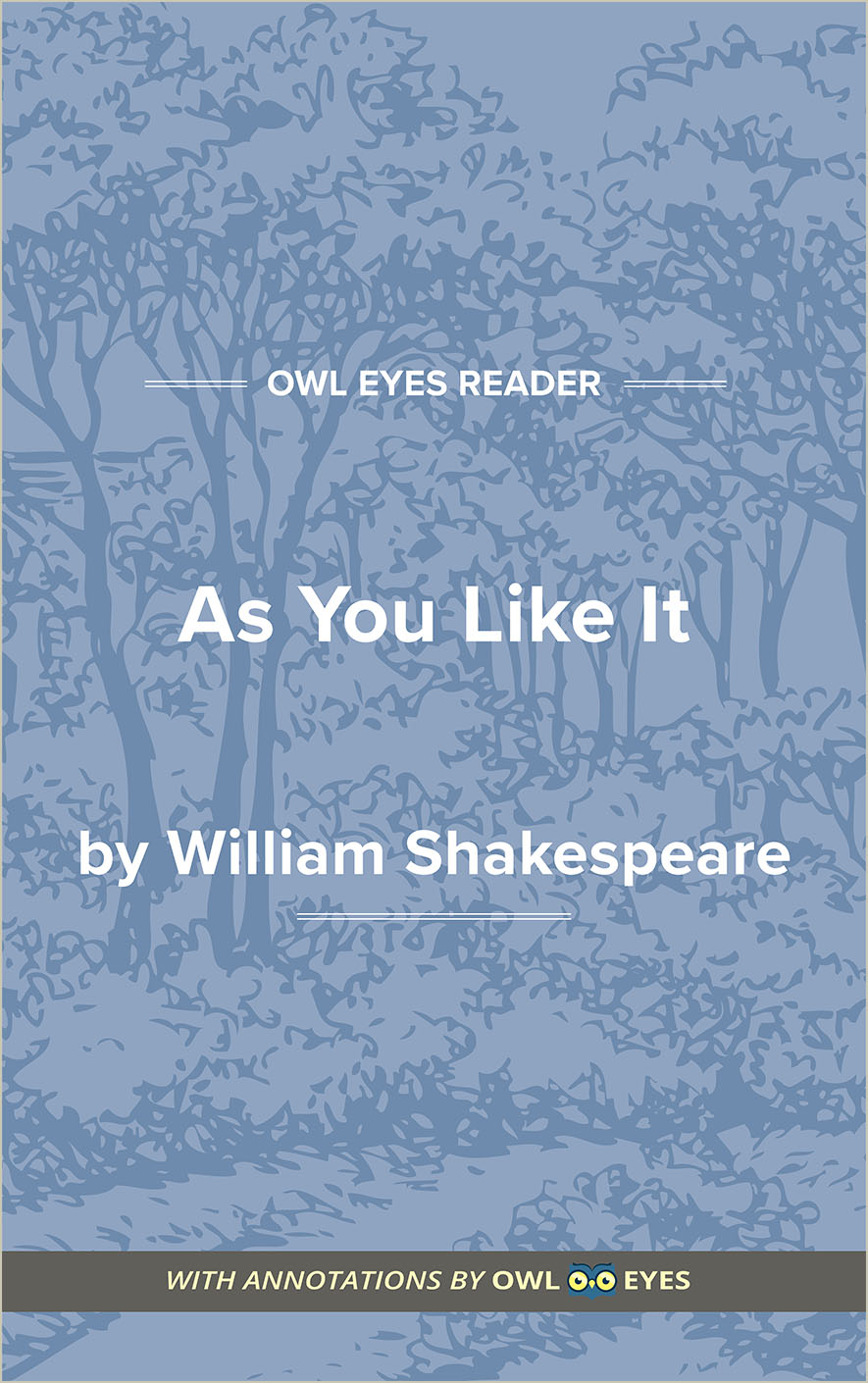Analysis Pages
Meter in As You Like It
Meter Examples in As You Like It:
Act I - Act I, Scene 1
🔒"As I remember, Adam, it was upon this fashion,--bequeathed me by will but poor a thousand crowns, and, as thou say'st, charged my brother, on his blessing, to breed me well: and there begins my sadness...." See in text (Act I - Act I, Scene 1)
Act I - Act I, Scene 3
🔒"Let me the knowledge of my fault bear with me:..." See in text (Act I - Act I, Scene 3)
Act II - Act II, Scene 1
🔒"Finds tongues in trees, books in the running brooks, Sermons in stones, and good in everything. I would not change it...." See in text (Act II - Act II, Scene 1)
Act II - Act II, Scene 3
🔒"He will have other means to cut you off; I overheard him and his practices. This is no place; this house is but a butchery:..." See in text (Act II - Act II, Scene 3)
Act III - Act III, Scene 2
🔒"Ay, but the feet were lame, and could not bear themselves without the verse, and therefore stood lamely in the verse...." See in text (Act III - Act III, Scene 2)
Act IV - Act IV, Scene 1
🔒"Nay, then, God be wi' you, an you talk in blank verse...." See in text (Act IV - Act IV, Scene 1)
Act V - Act V, Scene 1
🔒"Then learn this of me:--to have is to have; for it is a figure in rhetoric that drink, being poured out of cup into a glass, by filling the one doth empty the other;..." See in text (Act V - Act V, Scene 1)

